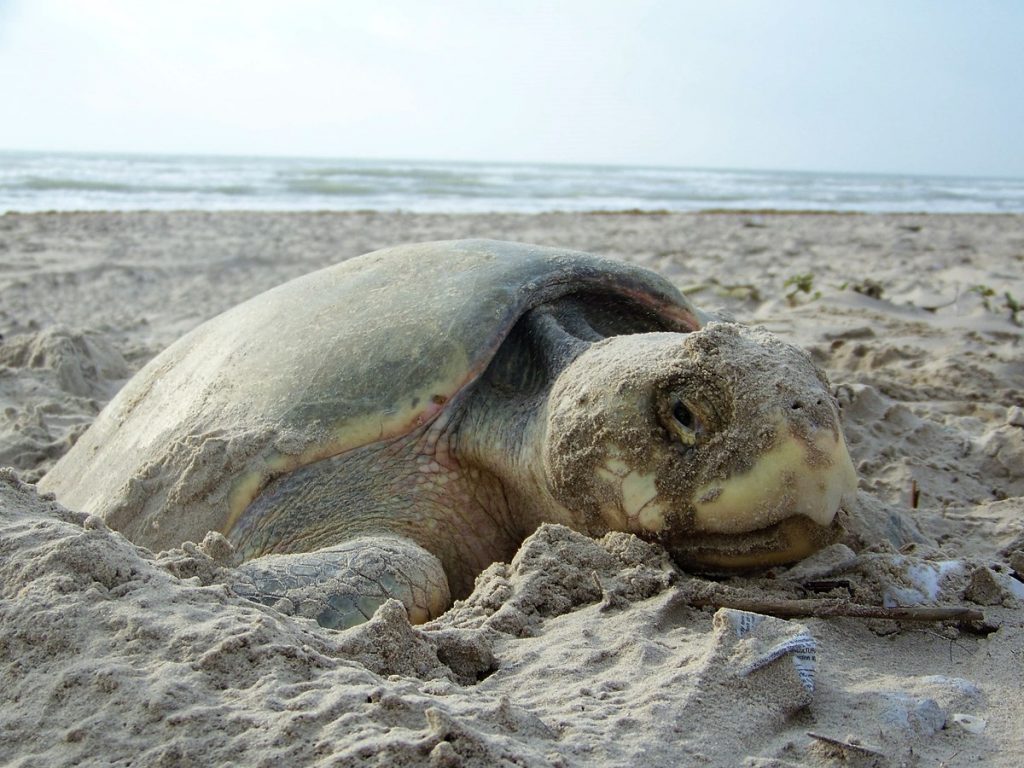Family Travel that Makes a Difference: Global Sea Turtle Conservation
ABOUT
At Our Whole Village, we plan meaningful vacations for families who want to create lifelong memories and show their kids the world in a more conscious and intentional manner.
WORK WITH US
We help families take meaningful vacations so that they can escape everyday life, show their kids the world and make lifelong memories - with care, confidence and peace of mind.
THE BEST FAMILY VACATIONS BY AGE
Your (free) guide to the top travel destinations for families with babies, teens and everyone in between.
DOWNLOAD NOW
ABOUT US
May 23, 2019
Did you know that May 23rd is known around the globe as World Turtle Day? First created in 2000 by the American Tortoise Rescue organization, the day commemorates turtles and tortoises and raises awareness about the plight of these creatures. Activities range from wearing green to completing classroom projects and even lending a hand with local rescue programs.
With this in mind, let’s take a moment to explore the colorful array of sea turtle species and some of the threats they face in the wild. We’ll also check out how you can lend a helping hand to sea turtles with family travel that makes a difference.
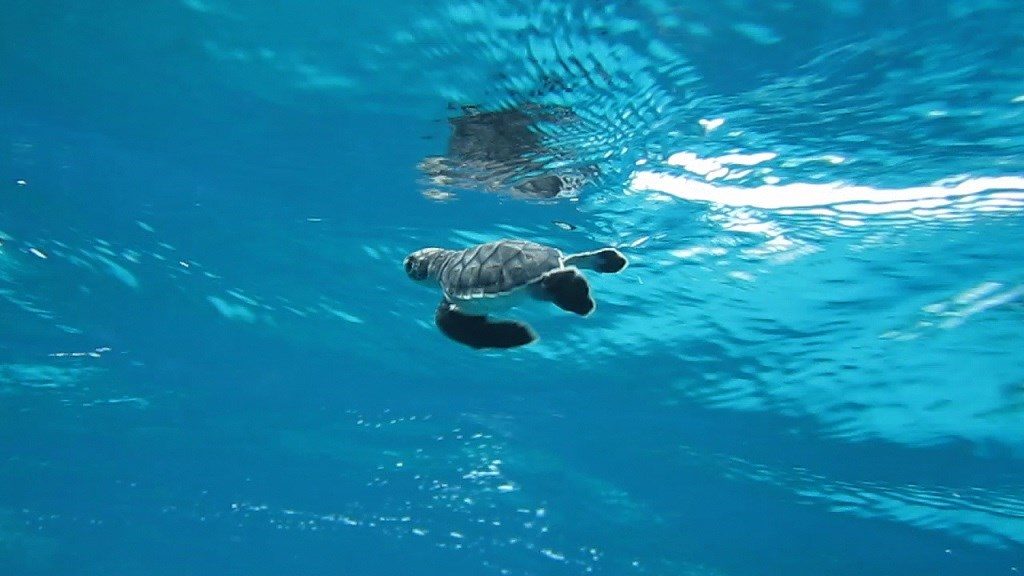
Sea Turtle 101
Seven different types of sea turtle species are found throughout the world:
- Hawksbill turtles
- Green turtles
- Flatback turtles
- Loggerhead turtles
- Kemp’s ridley turtles
- Olive ridley turtles
- Leatherback turtles
Six of these species are classified in the Cheloniidae family. But leatherback turtles get their own family, Dermochelyidae, because of their one-of-a-kind appearance and massive size.
In fact, leatherback turtles are the largest sea turtles in the world. They can weigh upwards of 2,000 pounds and measure six feet long!
All seven species of sea turtles fall under the Endangered Species Act. This act provides protections for them and the ecosystems that they rely on. But sea turtles still face many threats around the globe.
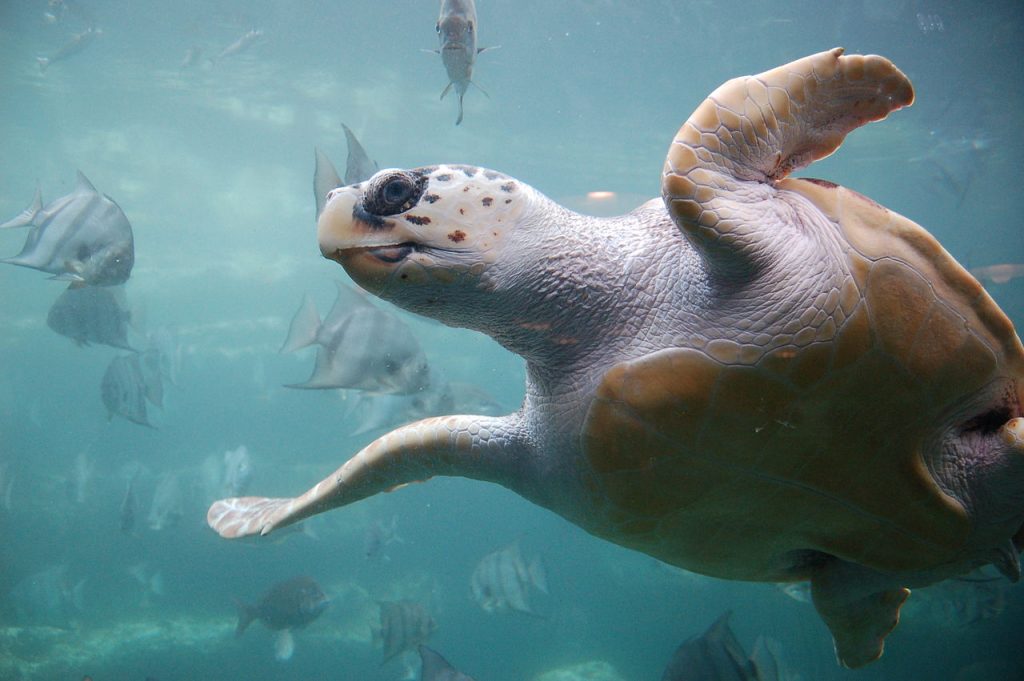
It’s a Sea Turtle’s Life
Sea turtles swim every ocean in the world except for the Arctic. Every year, many of these species converge on the beaches of Baja Mexico and Brazil to lay eggs, ensuring new generations of sea turtles will soon swim the waters of the world.
Sea turtles spend most of their life at sea. But when female turtles return to land to create nests and lay their eggs, they find the exact location where they were born! How do they do this? Researchers speculate that they use the Earth’s magnetic field to precisely locate the spot. But how this works remains a mystery.
Each sea turtle nest may contain up to 200 eggs, which females bury in the sand. While this sounds like a lot of baby sea turtles, they face countless natural predators once born. The worst of these remain human beings.
Why Sea Turtles Need Our Help
Why do some humans prey on sea turtles? Sea turtle eggs can bring a high price on the black market. So can turtle meat and turtle parts. Because of this illegal demand, poachers destroy nests and steal eggs. They also hunt vulnerable turtle populations.
A new threat lurks in the oceans of the world, too. Plastic waste. For example, some turtles mistake plastic bags for their favorite food, jellyfish. When they accidentally ingest these bags, it can cause them to suffocate or feel so full that they stop eating altogether.
Illegal human activities and increased plastic waste have significantly affected sea turtle populations in recent years. But there’s still hope.
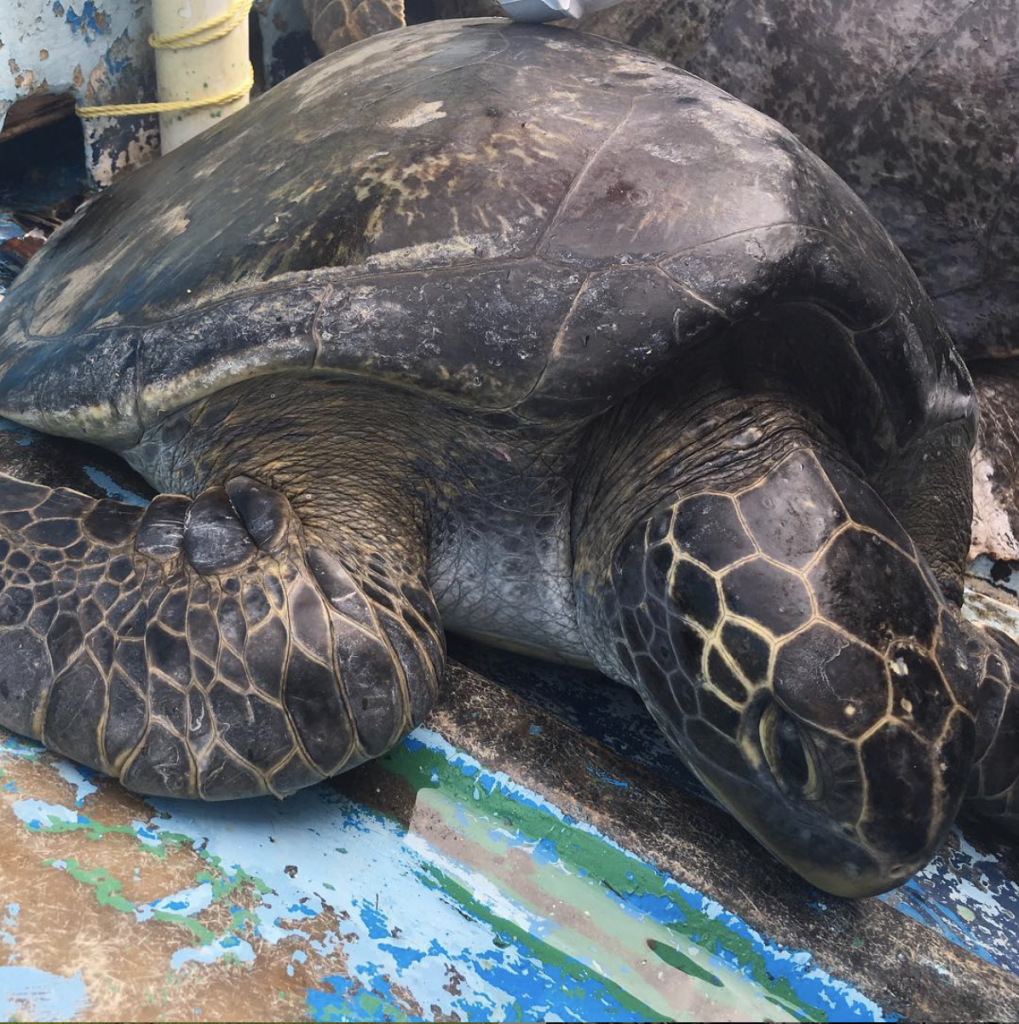
How We Can Help
When visiting Mexico or Brazil, avoid any products derived from sea turtles. This includes items made from eggs, shells, and meat. Increased demand for turtle products means greater pressure on species in the wild.
Mexico and Brazil both run a number of sea turtle conservation programs, which bring together government agencies and marine biologists. Their activities include stationing federal and local police where they’re most needed. These police guard sea turtle nests during the egg-laying season from June to November. Local volunteers also help the police keep an eye on nests.
Conservation groups work hard to return baby turtles to the ocean after they hatch. Once in the water, baby turtles prove better at protecting themselves and hiding from natural predators.
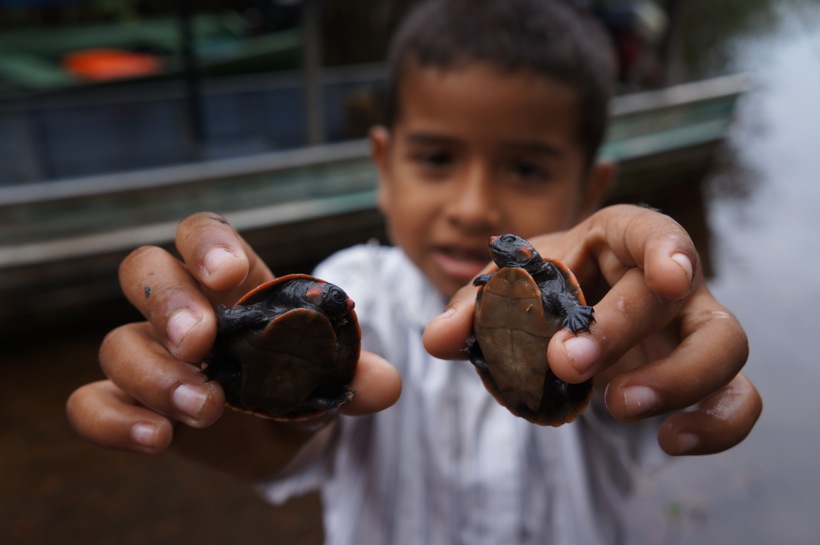
Family Travel that Makes a Difference
On our Baja Mexico family adventure, we connect families with a local sea turtle conservation program near Todos Santos. This group is making crucial inroads when it comes to rehabilitating local populations. The hatchery protects leatherback sea turtle and olive ridley sea turtle nests and helps babies once they hatch.
During our Brazilian Amazon family adventure, families can get involved with the Quelônios Turtle Conservation project on the Jauaperi river. Funded by the Jauaperi River Artisans Association, they protect six beaches in four different communities with the goal of releasing 3,000 turtles at the end of each cycle.
How can you lend a hand with this group? Depending on the length of your itinerary and time of year in Brazil, families who travel with us can help search for eggs (October-December) or release the turtles back into the river (January-March).
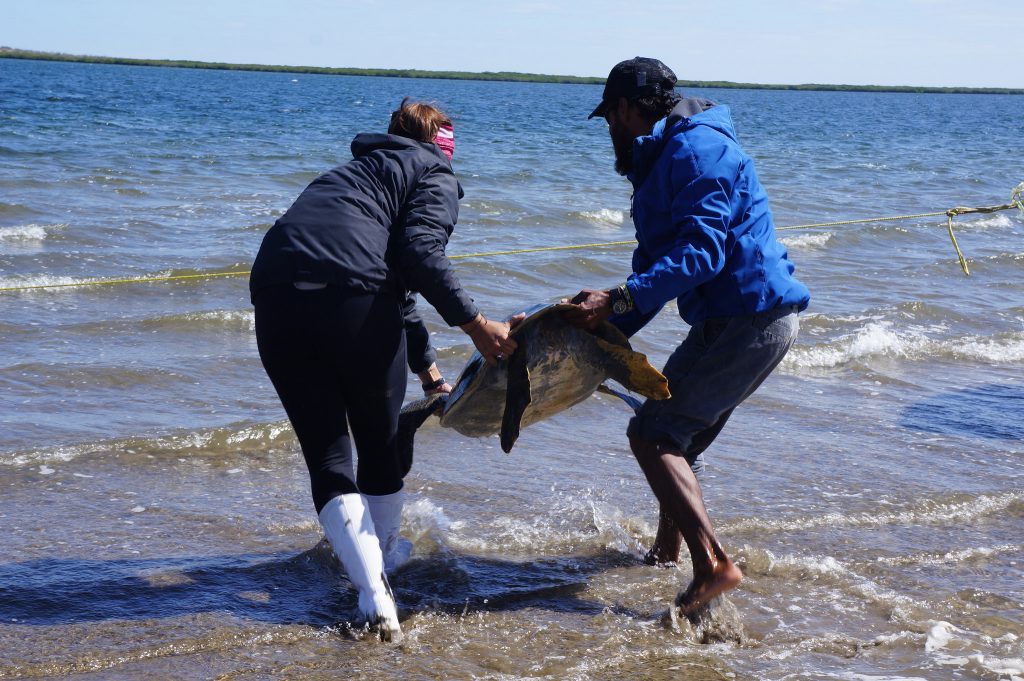
Sea Turtle Conservation for the Whole Family
From making sure babies reach the water to cleaning up beaches, there are countless ways to get involved in sea turtle conservation. When you visit Brazil or Baja Mexico with kids, you’ll make sure sea turtles have a brighter future. You’ll also teach your children about these beautiful creatures and how we can take steps to ensure they’re around for many generations to come.
Interested in one-of-a-kind family travel that makes a difference? Check out our eight-day Family Wildlife Adventure in Baja, Mexico. This family-focused tour explores the dramatic, varied landscapes and ocean-scapes of the Baja California peninsula. Or, come along on our 8-day Brazilian Amazon Cruise, an immersive, authentic way to visit some of the most extraordinary destinations in Brazil with kids.
At Our Whole Village, we craft transformational trips for curious families who want to create lasting memories while making a difference. We’re here to help you and your family experience the world, its peoples, and its cultures. Contact us today to learn more about the unforgettable experiences that we handcraft for curious families just like yours.
OUR SERVICES
HOME
COPYRIGHT © OUR WHOLE VILLAGE 2021
DESIGN BY GIRLBOSS DESIGNER | CUSTOMIZED BY ALEX COLLIER DESIGN
about
TRAVEL SERVICES
DESTINATIONS
BLOG
PLAN A TRIP
FREE TRAVEL GUIDE
TERMS AND CONDITIONS
hello@ourwholevillage.com
+1 305 432 2612
